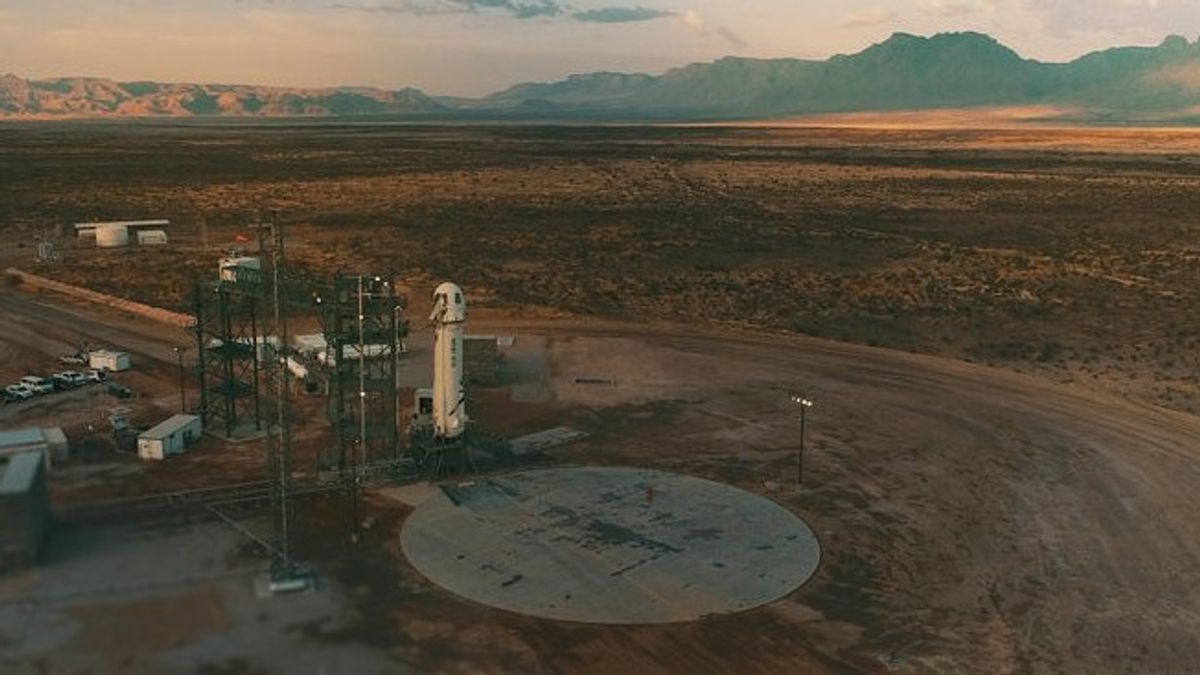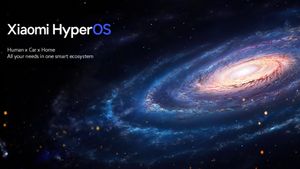JAKARTA - After 15 months of its final launch attempt, Blue Origin is finally ready to fly back. Jeff Bezos' multi-billion dollar company will try to launch its New Shepard rocket on December 18 from its West Texas facility.
No passengers will be on board, although all eyes will be on the rocket to see if it can avoid a fatal failure in September 2022.
At the time, failures occurred due to failed rocketraising just after more than a minute after launch dramatically triggered the capsule escape system.
The launch window from the runway in West Texas opened at 8:30 a.m. local time (14:30 GMT), Blue Origin confirmed on Twitter.
The mission - called NS-24 - does not carry humans, although comes with 33 science and research payloads for clients, including NASA and various universities in the US.
Also inside there will be 38,000 postcards sent by students as part of a program led by Club for the Future, Blue Origin's nonprofit education organization.
After the postcard returns to Earth, they will be branded 'Flown to Space' and returned to each student as a unique souvenir.
"This is the 24th flight for New Shepard and its 13th payload mission," the company said in a statement on its website. "This mission will carry the number of payloads transported into space with New Shepard to more than 150."
NS-24 has received approval from the Federal Aviation Administration (FAA).
His predecessor, NS-23 in September 2022, made the news for the wrong reasons. A 'anomalous' a little more than a minute after the launch saw the New Shepard capsule activate the escape system to stay away from the booster when the engine died.
The FAA conducted a year-long investigation into the incident and ordered the company to carry out 21 repair measures before it could resume the launch.
A report blamed the failure of the engine nozzle due to higher engine operating temperatures than expected.
This caused the New Shepard rocket to fall back to the ground as soon as it took off, although the capsule carrying the research experiment escaped and flew back safely to Earth.
"In this crash, the in-plane launch system detected anomalies, triggering the termination and separation of the capsule from the propulsion module as desired, and turning off the engine," the FAA said.
The fact that the crew capsule immediately escaped is considered positive, suggesting that any crew would be safe if they were inside.
Should be the 23rd overall mission for the New Shepard rocket program, but eventually the first to end in failure.
SEE ALSO:
The Blue Origin space program, which brought tourists into orbit for a short period and safely returned them to Earth, is one of the most elite experiences available and costs more than 25 million US dollars (Rp388.2 billion).
After sliding, lucky passengers move at a speed of sound across the Karman line (the boundary between Earth's atmosphere and outer space). They then float without weight for a few minutes and 'witness life-changing views' from Earth, before descending slowly under the parachute.
It is not yet clear who will be on Blue Origin's next flight into orbit, which is expected to happen next year. But Lauren Sanchez, Bezos' girlfriend, has expressed his intention to lead a crew of only women by early 2024.
In total, Blue Origin has launched six manned flights - several passengers are paid subscribers and others have flown as guests - since July 2021, when Bezos himself took part in the first flight. This manned flight includes guests of celebrities flying for free, including Star Trek legend William Shatner.
The English, Chinese, Japanese, Arabic, and French versions are automatically generated by the AI. So there may still be inaccuracies in translating, please always see Indonesian as our main language. (system supported by DigitalSiber.id)

















